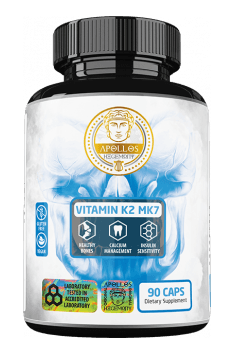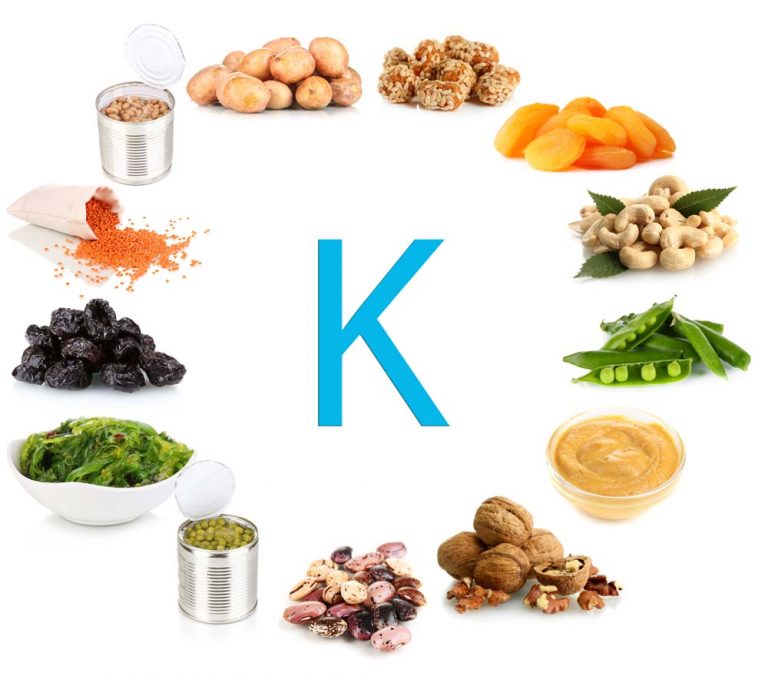The research from the year 2013 proved that supplementation with vitamin K2 in the form of MK-7 counteracts the decline of bone density and strength among women after menopause. The research lasted 3 years and was accomplished by 233 women.
Vitamin K and osteoporosis - clinical study
Before starting the proper study, the researchers carried out a trial of doses on the limited number of healthy volunteers. In this preliminary research they established the dose of 180mcg a day as a minimal dose of MK-7, required to ensure full osteocalcin carboxylation. Therefore, for the 3-year study such dose was adopted, taken in one portion with the main meal of the day.
Vitamin K2MK-7 application positively influenced mineralization of bones, their density and resilience.
Vitamin K and osteoporosis - results of the study
Conclusion of the study was
supplementation with vitamin K2 in the form of MK-7 may help to counteract bone mass decline among women after menopause.
The research did not prove any side effects of taking vitamin K2 MK-7 with the exception of the patients taking warfarin.
Explanation of results
Dr. Cees Vermeer from the University of Maastricht, carrying out the research on vitamin K, describes in the interview the meaning of vitamin K:
The most obvious role of vitamin K is the fact that it is the cofactor of osteocalcin carboxylation, a protein created in large amounts by osteoblasts (cells creating bones). The stage of carboxylation is the initial condition of biological activity of all proteins dependent on vitamin K. Osteocalcin is attributed a few functions, the most obvious of which is its role as an inhibitor of calcifications of the luminal side of collagen fibers in bones. These fibers are important to maintain bone resistance to bending. Another way, in which vitamin K contributes to bone endurance is the improvement of bone geometry in critical places, such as femoral neck. We observed by means of inducible vitamin K, the rebuilding leading to stronger femoral neck.
Vitamins K1 and K2 share the same function of the cofactor of protein carboxylation, but a more lipophilic character of vitamin K2 enables its different transport in the human body. Vitamin K1 is preferentially transported to the liver, where it is engaged in the synthesis of blood coagulation. Vitamin K2, on the other hand, is incorporated in lipoproteins of high density and is transported to extrahepatic tissues, including bones.

Vitamin K2 is an umbrella term for several closely related structures, called menaquinone. Their nomenclature is MK-n, where “n” means the number of isoprenoid remnants in aliphatic side chain. Dietary vital menaquinones are ML-4 (similar to K1), MK-7 (present in the Japanese natto) and MK-8, MK-9 and MK-10 (which are present is cheese and fermented food). The three forms of vitamin K are available as dietary supplements: vitamin K1, MK-4 and MK-7. Both vitamin K1 and MK-4 are sold as synthetic products with a very short time of half-life in the circulation (around 1 hour). The only naturally available form of vitamin K is MK-7 (the commercial name MenaQ7), which is obtained in the process of fermentation and whose half-life is around 3 days. Different periods of half-life explain why MK-7 has considerably higher effectiveness than K1 or MK-4.
Dr. Vermeer conclusion
Vitamins are used for disease prophylaxis, not as medications. Therefore, I strongly recommend starting supplementation before the decline of bone mass begins. Starting supplementation only after detecting osteoporosis is too late. It is better to start at the age of 40 and in this way maintain bones in a perfect state.
Dr. Vermeer adds in the interview that even though the research was carried out on women after menopause, there is no reason for the treatment to be ineffective in other groups, e.g. among men (although in the same research they concluded that it should be confirmed in further research).
Dr. Vermeer concludes that the studies with the use of K1 and MK-4 at the doses 10-50 times higher demonstrated less evident effectiveness or even lack of effects as for bone strength.
Sources
H. J. Knapen, N. E. Drummen, E. Smit, C. Vermeer, E. Theuwissen. Three-year low-dose menaquinone-7 supplementation helps decrease bone loss in healthy postmenopausal women. Osteoporosis International. September 2013, Volume 24, Issue 9, pp 2499-2507.







2 Comments